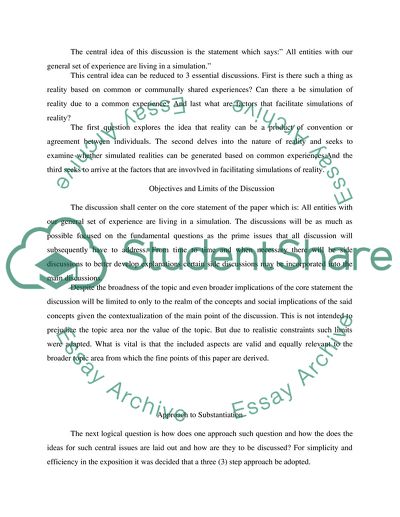Cite this document
(How Objective or Subjective Phenomenon Is Reality Coursework, n.d.)
How Objective or Subjective Phenomenon Is Reality Coursework. Retrieved from https://studentshare.org/philosophy/1737753-almost-all-entities-with-our-general-set-of-experiences-are-living-in-a-simulation-ryan-north
How Objective or Subjective Phenomenon Is Reality Coursework. Retrieved from https://studentshare.org/philosophy/1737753-almost-all-entities-with-our-general-set-of-experiences-are-living-in-a-simulation-ryan-north
(How Objective or Subjective Phenomenon Is Reality Coursework)
How Objective or Subjective Phenomenon Is Reality Coursework. https://studentshare.org/philosophy/1737753-almost-all-entities-with-our-general-set-of-experiences-are-living-in-a-simulation-ryan-north.
How Objective or Subjective Phenomenon Is Reality Coursework. https://studentshare.org/philosophy/1737753-almost-all-entities-with-our-general-set-of-experiences-are-living-in-a-simulation-ryan-north.
“How Objective or Subjective Phenomenon Is Reality Coursework”, n.d. https://studentshare.org/philosophy/1737753-almost-all-entities-with-our-general-set-of-experiences-are-living-in-a-simulation-ryan-north.


